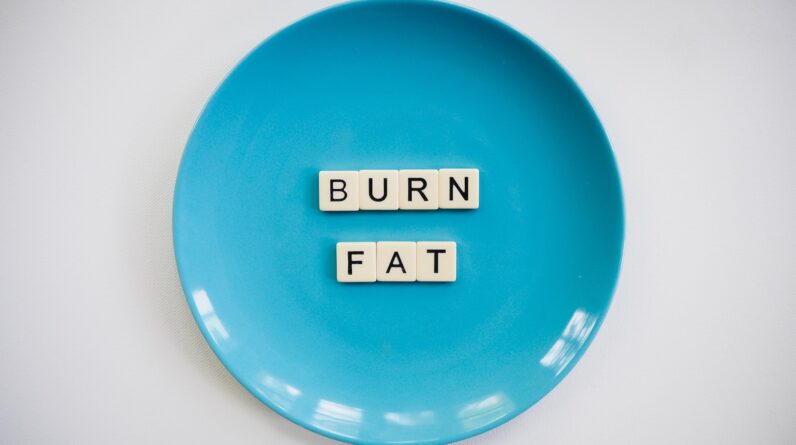
Setting Realistic Weight Loss Goals
Understanding your Body Mass Index (BMI)
Before embarking on a weight loss journey, it’s essential to determine a healthy weight range for your body. The Body Mass Index (BMI) is a useful tool for this purpose. It calculates your weight-to-height ratio, giving you a general indication of whether you’re underweight, normal, overweight, or obese. Keep in mind that BMI doesn’t account for muscle mass or body composition, so consider consulting a professional for a more accurate assessment.
Estimating a Healthy Weight Loss Timeline
Rapid weight loss may seem appealing, but it’s vital to set achievable and sustainable goals. Aim for a weight loss rate of 1-2 pounds per week. This rate is not only more manageable but also healthier for your body in the long run.
The Importance of Diet in Weight Loss
Incorporating a Calorie Deficit
To lose weight, you must consume fewer calories than your body requires. This creates a calorie deficit, forcing your body to burn stored fat for energy. Track your daily caloric intake and aim for a deficit of 500-1000 calories per day to achieve steady weight loss.
Prioritizing Nutrient-Dense Foods
A balanced diet rich in whole foods, lean proteins, healthy fats, and complex carbohydrates is essential for weight loss. Opt for nutrient-dense options like fruits, vegetables, whole grains, and legumes. Avoid processed foods and added sugars, as they contribute to empty calories and weight gain.
Hydrating Effectively
Drinking water is crucial for weight loss. It aids digestion, improves metabolism, and can help suppress appetite. Aim for at least 8 glasses of water per day and consider increasing your intake during exercise or hot weather.
Exercise and Physical Activity
Cardiovascular Workouts
Cardio workouts, such as running, swimming, or cycling, are essential for burning calories and improving cardiovascular health. Aim for at least 150 minutes of moderate-intensity or 75 minutes of vigorous-intensity aerobic activity per week.
Strength Training
Strength training helps build muscle mass, which boosts metabolism and promotes weight loss. Include resistance exercises targeting all major muscle groups at least two days per week.
Incorporating Rest Days
Rest is crucial for recovery and preventing injury. Schedule at least one rest day per week, allowing your muscles to repair and grow stronger. This will help you maintain your exercise routine and achieve your weight loss goals more effectively.
Lifestyle Changes for Effective Weight Loss
Getting Adequate Sleep
Sleep plays a vital role in weight loss, as it affects hormones regulating hunger and appetite. Aim for 7-9 hours of quality sleep per night to support healthy weight management.
Managing Stress Levels
Chronic stress can lead to weight gain by increasing cortisol levels, which trigger cravings for high-calorie comfort foods. Practice stress-reducing techniques like meditation, yoga, or deep breathing exercises to promote mental well-being and support your weight loss journey.
Building a Support Network
A strong support network can keep you motivated and accountable during your weight loss journey. Share your goals with friends, family, or join online communities for encouragement and advice.
Keeping Track of Your Progress
Monitoring your progress helps you stay focused and make necessary adjustments to your weight loss plan. Regularly weigh yourself, track your food intake, and measure your body composition. Celebrate your achievements and learn from setbacks to continually improve.
Common Weight Loss Mistakes to Avoid
- Skipping meals: This can lead to extreme hunger and overeating later in the day.
- Over-exercising: Pushing yourself too hard can result in injuries or burnout.
- Focusing on short-term results: Sustainable weight loss takes time, so be patient and consistent.
- Neglecting emotional factors: Emotional eating can hinder weight loss efforts. Address emotional triggers and develop healthy coping mechanisms.
Conclusion
Losing weight fast requires a combination of realistic goal-setting, a balanced diet, regular exercise, and positive lifestyle changes. By incorporating these strategies and avoiding common weight loss mistakes, you’ll set yourself up for success in achieving your desired weight.
Frequently Asked Questions
Q1: How much weight can I expect to lose in a week?
A1: A healthy weight loss rate is typically 1-2 pounds per week. Losing weight faster than this can lead to muscle loss and other health issues.
Q2: What’s the best exercise for weight loss?
A2: There is no single “best” exercise for weight loss. A combination of cardiovascular workouts and strength training will yield the best results.
Q3: How many calories should I eat to lose weight?
A3: The number of calories you should consume depends on your age, gender, weight, and activity level. Generally, creating a calorie deficit of 500-1000 calories per day will result in steady weight loss.
Q4: Can I lose weight without exercise?
A4: While it’s possible to lose weight through diet alone, incorporating exercise will help you achieve faster, more sustainable results and improve overall health.
Q5: How important is sleep for weight loss?
A5: Sleep is crucial for weight loss, as it affects hormones that regulate hunger and appetite. Aim for 7-9 hours of quality sleep per night to support healthy weight management.







